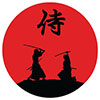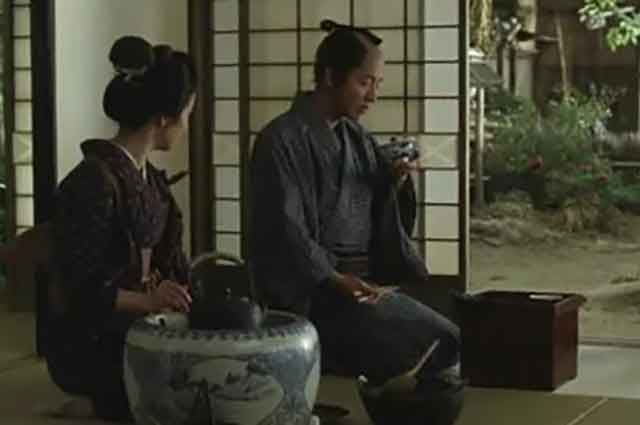
The Japanese film "Love and Honor" was released on October 20, 2006. It is part of a trilogy directed by Yoji Yamada set in the Edo period. The first films of this saga were "Twilight Samurai", released in 2002 and "Hidden Blade" in 2004.
Love and Honor tells the story of a low-level samurai, Shinojo, who is assigned the rather unpleasant job of tasting a feudal lord's food to see if it's poisoned. Shinojo is very lucky with his beautiful wife Kayo. She is devoted to her husband and supports him in everything. Even when the samurai talks about opening a kendo school where boys of any caste can study.
But one day, Shinojo tries low-quality clam sashimi and falls ill. This poisoning was not the result of a special conspiracy against the samurai, but the products were chosen poorly. On the third day of his illness, the man felt that he was going blind. The samurai's uncle asks Kayo if she knows a person who can help her husband. She replied that there was a senior duty officer, Toya Shimada, in the castle. He is a high-ranking samurai and offers his help. The Shinojo family decides to accept this support.
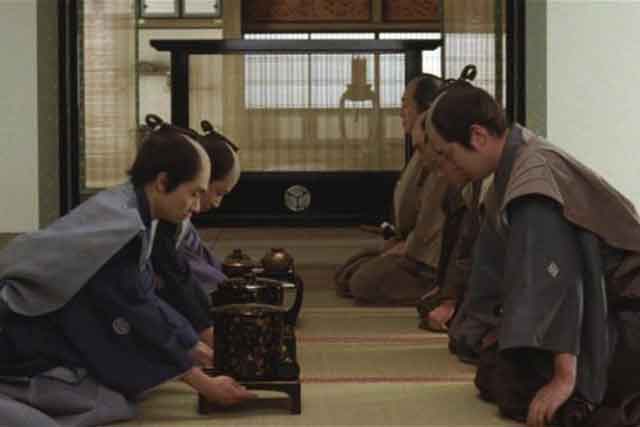
At the same time, the castle reported that the sick samurai had been saved a rice stipend. It will remain unchanged and will be for life. But Aunt Shinojo tells him that she saw his wife with another man. The samurai asks his trusted servant Tohukei to keep an eye on his wife. Kayo noticed the surveillance and told Tohukei everything. The servant offers to help the mistress and cover her actions in front of Shinjo. But a devoted wife herself decides to tell her husband everything honestly. It turned out that the Synod set a certain price for helping the family of a poor samurai. During the first meeting with Kayo, he proposed to her a love relationship. If the woman did not agree to continue to meet with the Synod, he promised that he would tell her husband about the first date. When Shinjo found out about everything, he became furious and decided to divorce his wife. Kayo had to leave his home.
In addition, the samurai learns that Shimada did nothing to save his scholarship - this decision was made by the lord of the clan himself. Shinjo decides to take revenge on his enemy and begins training with the sword even though he is blind. He sends Tokuhei to Shimada with a request to arrange for them to fight together. During the fight, Shinoze deprives the opponent of his arm. Shimada did not tell anyone who disfigured him and committed suicide that same night. A real samurai cannot be one-armed. Therefore, no one knew that he dishonored Kayo and was punished for this sin.
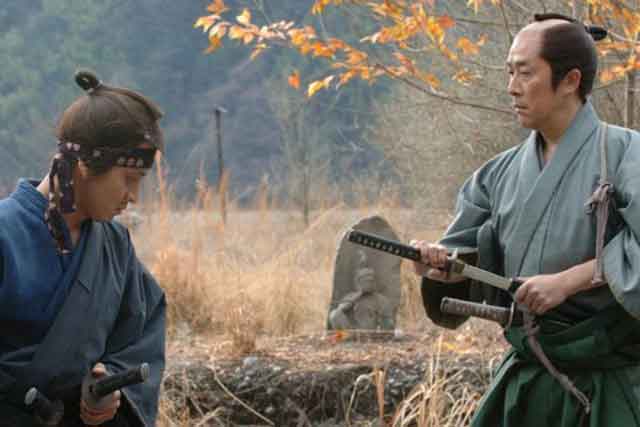
After some time, Tokuhei informs the owner that he has found a girl who agrees to work in their kitchen. Shinjo immediately realized that this girl was his wife when he tasted her cooking. He calls Kayo to come into the house. The couple decides to reconcile and start a life together from scratch, not remembering the past.
The main role in the film was played by Japanese singer and actor Takuya Kimura. The painting "Love and Honor" won several prestigious awards. The most significant of them is the prize at the Shanghai International Film Festival and the prize of the Japanese Film Academy won in three categories.
See also
-
Tatara Samurai
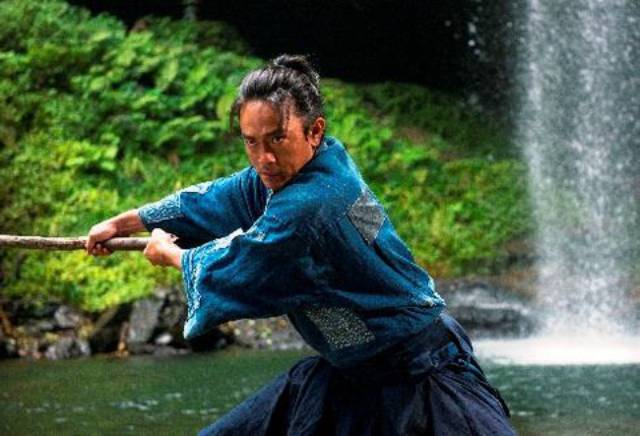
One day, bandits raid the quiet Tatara village, renowned for its steelworks and sword craftsmanship. Despite the arrival of samurai to protect the villagers, young Gosuke's mother is tragically killed while fleeing with him.
-
Samurai Fiction
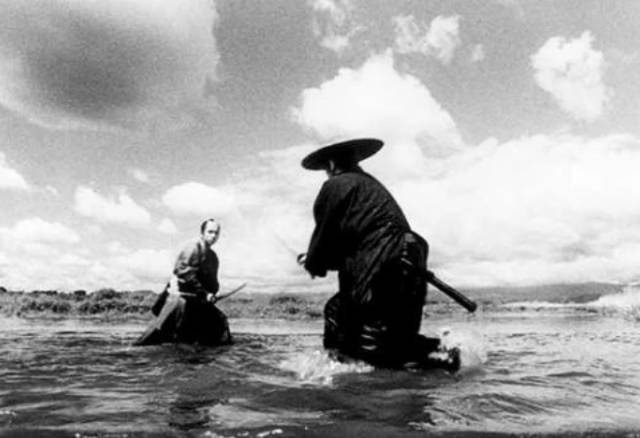
Samurai Fiction is a 1998 samurai-comedy film directed by Hiroyuki Nakano. The movie stands out for being filmed almost entirely in black-and-white, paying homage to classic jidaigeki samurai films. However, what sets it apart from its inspirations, including the works of Akira Kurosawa, is its modern twist, notably Tomoyasu Hotei's rock-and-roll soundtrack. A loose spinoff, Red Shadow, was released in 2001.
-
Rurouni Kenshin
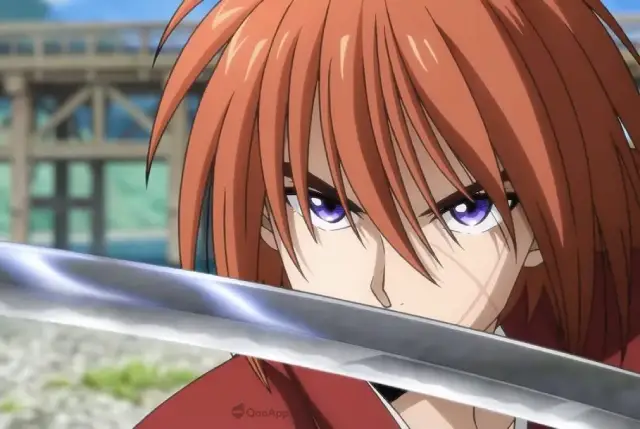
Rurouni Kenshin: Meiji Swordsman Romantic Story (Japanese: Hepburn: Rurōni Kenshin -Meiji Kenkaku Roman Tan-) is a Japanese manga series created by Nobuhiro Watsuki. Set in 1878, during the 11th year of the Meiji era in Japan, the story follows a former assassin known as Hitokiri Battosai. After his role in the turbulent Bakumatsu period, he adopts the identity of Himura Kenshin, a wandering swordsman who vows never to kill again. He dedicates his life to protecting the people of Japan. Watsuki crafted this series with the intent to create a unique shōnen manga, distinguishing it with a protagonist who is a former assassin and a narrative that becomes increasingly serious as it progresses.
-
Samurai Spy
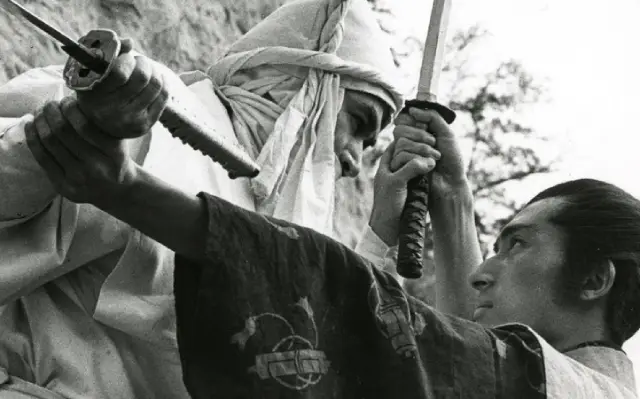
Samurai Spy (Ibun Sarutobi Sasuke), also known as Spy Hunter, is a 1965 film directed by Masahiro Shinoda, adapted from a novel by Koji Nakada. The film follows the legendary ninja Sasuke Sarutobi as he hunts the elusive spy Nojiri, while a shadowy figure named Sakon leads a group of men with their own designs on Nojiri. As the pursuit unfolds, the lines between allies and enemies blur, leaving everyone unsure of each other's true allegiance. Created during the height of the Cold War, the movie reflects the complexities and shifting loyalties of spies caught in the power struggles of their era.
-
Samurai III: Duel at Ganryu Island
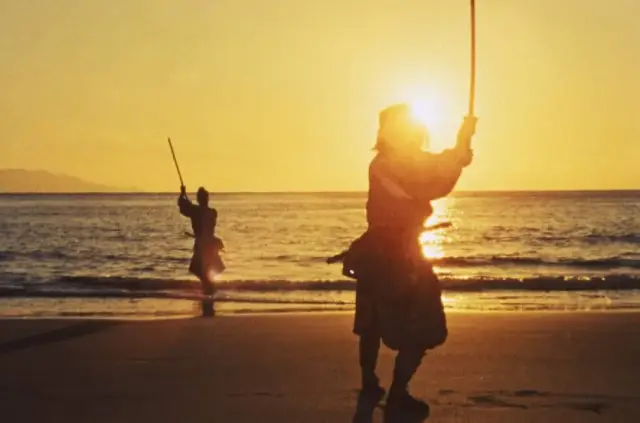
Samurai III: Duel at Ganryu Island (Japanese: Hepburn: Miyamoto Musashi Kanketsuhen: Ketto Ganryūjima) is a 1956 Japanese film directed by Hiroshi Inagaki and starring Toshiro Mifune. Filmed in Eastmancolor, it serves as the concluding chapter of Inagaki's Samurai Trilogy.
-
Samurai Marathon
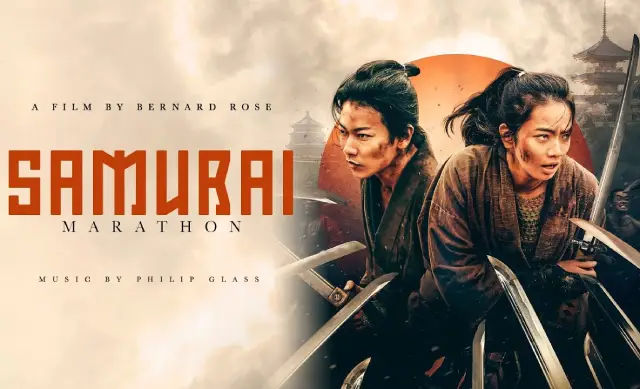
The producing team behind Takashi Miike's "13 Assassins," Jeremy Thomas and Toshiaki Nakazawa, reunite for another visually striking and action-packed samurai film. Based on a novel by Akihiro Dobashi, this film may not reach the same heights of relentless carnage or critical acclaim as its predecessor, but it still offers an exciting and occasionally humorous addition to the samurai genre, likely to resonate with festival audiences. This story of a literal running battle between rival samurai factions could see moderate success in theaters, though it may require more marketing effort without the ultra-violent appeal that made "13 Assassins" memorable.
-
Samurai II: Duel at Ichijoji Temple (1955)
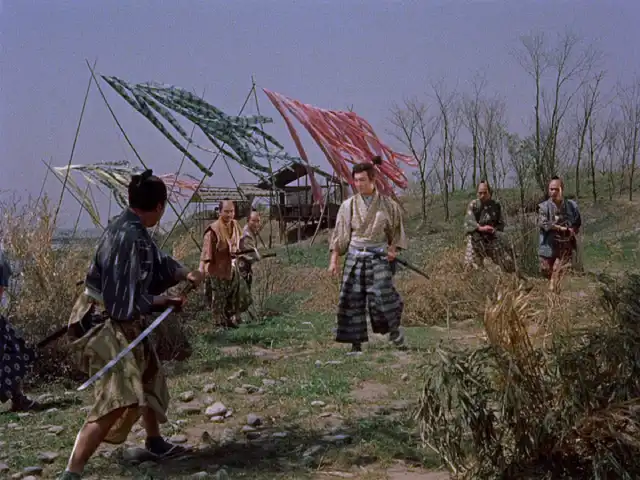
Duel at Ichijoji Temple (Hepburn: Zoku Miyamoto Musashi: Ichijōji no Kettō) is a 1955 Japanese film directed by Hiroshi Inagaki and starring Toshiro Mifune. Filmed in Eastmancolor, it is the second installment in Inagaki's Samurai Trilogy.
-
The Samurai I Loved (Semishigure)
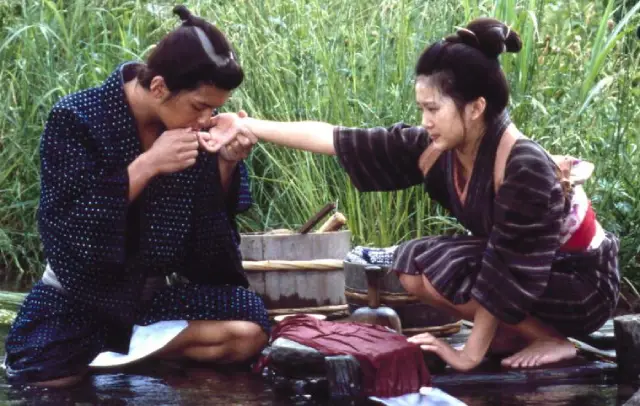
The costumes, settings, and script of The Samurai I Loved immediately transport samurai film enthusiasts back to the golden era of classic black-and-white samurai masterpieces.

